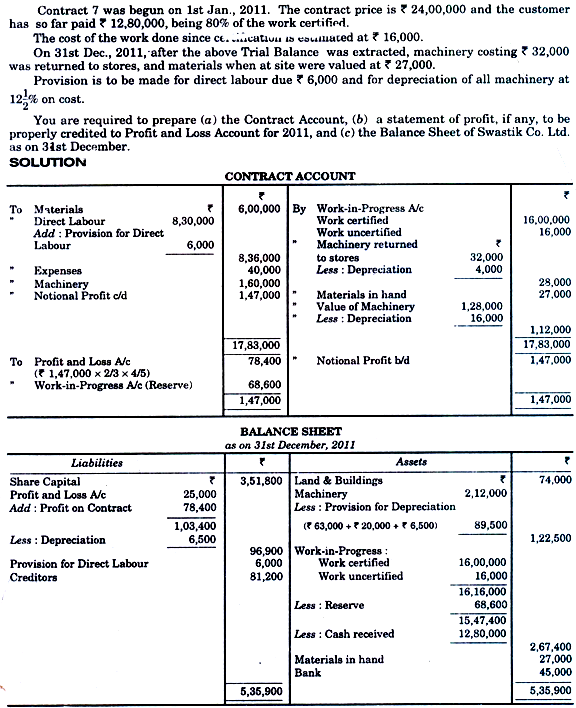Is a CEO or managing director higher?
Content

The evolution of public ownership has created a separation between ownership and management. Before the 20th century, many companies were small, family-owned and family-run. Today, many are large international conglomerates that trade publicly on one or many global exchanges. Is the highest level managing director vs ceo of Executive Officer and is responsible for the smooth functioning of the corporation, for the company’s profitability, and the day to day functions and targets of the company. It takes many people fulfilling many different jobs and responsibilities to run a company effectively and profitably.
If that business is a subsidiary which has considerably more independence, then the title might be chairman and CEO. Even though there are no special educational requirements to become a managing director, an advanced degree may be required. They might also need to be proficient technically and have vast professional experience in their field. In conclusion, a Managing Director and an Executive Director have different duties in terms of education and job experience. A Managing Director typically requires a higher level of education and more job experience and oversees the entire organization. On the other hand, an Executive Director is responsible for the organization’s day-to-day operations.
Certification as a professional director
In small organizations, CEOs are usually more hands-on and involved with day-to-day operations. In larger organizations, CEOs typically handle high-level strategic decisions and those that determine the company’s overall growth trajectory. A CEO is the top position at a company, however they are still an employee of that company. They report to others, remaining accountable to the company’s board of directors or to shareholders in a publicly traded company.

Their main goal is to run a business successfully and maximize shareholder wealth. The functional role of the two might be similar to each other, but there will always be legal distinctions between the two. While the primary authority to define missions, visions, and governance is vested in shareholders and the Board of Directors. Board further delegates the powers to the CEO and MD to manage the organization and routine operations of the company. CEO / MD is answerable to the Board of Directors for the performance and all circumstances that may significantly impact an organization.
Managing Director vs. CEO: What’s the Difference?
For the managing director, there are 3 points of consideration which must be determined to figure out what the salary will be. In the United States, an entry-level CEO with fewer than 5 years of direct experience may earn $120,000 or less. That is far less than the average CEO salary in the U.S., which was more than $750,000 per year in September 2018. How much a CEO earns is dependent upon their certification, business experience, education, and additional skills.

The CEO has the responsibility to facilitate business, and should also have a strategic vision to align the company, both internally and externally. A CEO has to guide the employees, and the executive officers whereas Managing Directors are held responsible for any action of the company. Overall you can say that CEOo work for the company growing up and cmd work for business and care for shares. However, the task of all is for company development and it is not so easy to completely define their proper working. The managing director of a company controls the day to day operations of a business and works closely with the chief executive officer to guide the business in achieving its goals. A managing director is like the stage manager of a play overseeing each move while a CEO is analogous to the play writer.
Main Differences Between CEO and MD
MD stands for Managing Director, and CEO stands for Chief Executive Officer. Although these two terms can be confusing when it comes to one’s roles and responsibilities, there are distinctive differences between the two. Similarly in Australia, you rarely see the term Vice President (VP) or Executive Vice President (EVP) used.
However, it is possible for a company’s Managing Director and CEO to be the same person. This is most often the case in a startup or small business, where a company’s founder sometimes performs the roles of both positions. One of the key determinants of your organization’s success is your board’s effectiveness. As such, it’s important to ensure your board has all the tools and resources it needs to execute its tasks effectively. Owners of successful businesses usually gain notoriety, especially since media stations are always looking to tell the story behind their success.
- CEO / MD is answerable to the Board of Directors for the performance and all circumstances that may significantly impact an organization.
- There is a strong parallel here with the structure of government, which tends to separate the political cabinet from the management civil service.
- However, there are some general skills that are important for both positions.
- A corporation often consists of different businesses, whose senior executives report directly to the CEO or COO, but that depends on the form of the business.
- A chief administrative officer (CAO) may be found in many large complex organizations that have various departments or divisions.
- The Megainterview team consists of career coaches and interview experts with 10+ years of experience helping job applicants and candidates ace their job interviews!
The equivalent Korean titles are isa (이사, 理事) and daepyo-isa (대표이사, 代表理事). They oversee C-level employees such as the COO, CTO, CFO, and others. They are also ranked higher than the Vice President of the company. Together, management and the board of directors have the ultimate goal of maximizing shareholder value. In theory, management looks after the day-to-day operations, and the board ensures that shareholders are adequately represented.
The Non-Profit Exception to the Managing Director
But if you’re an owner considering which title to take, there are distinct differences between the job functions of the roles. A managing director must be able to respond quickly to changes that occur on a daily basis in fast moving industries. They supervise people in other departments including sales and marketing and manage contracts with other business organizations who supply materials. Corporate titles or business titles are given to corporate officers to show what duties and responsibilities they have in the organization.
- The division of labor between these two positions varies depending on the organization, but ultimately they both report to a board of directors.
- Private, government, for-profit, non-profit, corporate, and non-corporate companies all post such jobs.
- States, the MBCA or Model Business Corporations Act has superseded the legal requirement and only makes the Board of Directors mandatory.
- If the business is a sole proprietorship, the company will cease operations.
- A Managing Director and Executive Director are both important positions in a company but have different roles and responsibilities.
- By contrast, smaller nonprofits may not have the budget to staff the positions separately.
It is the CEO’s job to ultimately make sure things run smoothly, and they are often the face of the company when it becomes of public interest. Alternative names for the title include managing director and president. The MD belong to the board of managing directors and is responsible for the day-to-day functioning and performance of the company. The MD is responsible for the overall management of an organisation. The other major difference between the Chief Executive Officer and a Managing Director, is their responsibilities.
Key Differences Between Chief Executive Officer vs Managing Director
Sometimes, for the election of the CEO along with the Board of Directors, some of the huge shareholders also have the right to vote in such matters, as do general shareholders. The decision of whom to include in the election process is made by the board of directors itself. And the shareholders report their data to the chairman of the board of directors, who is appointed by shareholders. This question is about managing director and chief executive officer. A job similar to a managing director is that of an account executive. Both require good communication skills and a capacity to make decisions based upon extensive market research.
Owners, on the other hand, are in charge of their entire company. Usually in charge of a smaller business than CEOs, business owners will only be held accountable to their customers, because it is entirely their business. They likely have experience in other management positions or running other companies as CEO, and will apply for the job. Business owners have usually founded their business from the beginning and continue to run it. Managing directors typically have more experience working in the day-to-day operations of a company than executive directors.

Nonprofits develop their leadership structure based on several things, including the nonprofit’s size, type of industry, geographical location, regulations and other criteria. The leadership hierarchy should be arranged to provide the nonprofit with solid direction and accountability, meaning nonprofits sometimes have a managing director and a CEO. CEOs are usually elected by the board and the company’s shareholders.
Additionally, a Managing Director should have strong leadership and managerial skills and excellent communication and interpersonal skills. An Executive Director is responsible for the organization’s day-to-day operations and reports to the Managing Director. They belong to the board of directing managers and are responsible for the business and management of the overall company. A CEO is a person who manages the performance of the company and ensures profits for the company or organisation they are working for. CEO, or the Chief Executive Officer, is one of the major executive entities or individuals who work in the company’s management.
